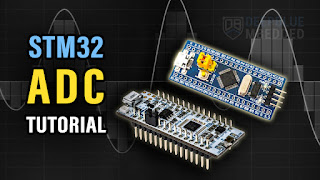What language does Raspberry Pi use?
- 获取链接
- X
- 电子邮件
- 其他应用
This is a fundamental question for getting started with the Raspberry Pi. The short answer is: The Raspberry Pi can use almost any major programming language.
The Pi is a full-fledged computer, so you're not limited to a single language like you might be with a simpler microcontroller (like Arduino, which primarily uses C++). Your choice depends on what you want to achieve.
Here’s a breakdown of the most common and suitable languages for the Raspberry Pi, categorized by purpose.
The "Default" & Highly Recommended for Beginners
Python
Python is considered the unofficial official language of the Raspberry Pi. It's the most popular choice for several reasons:
Beginner-Friendly: Simple, readable syntax that is easy to learn.
Massive Ecosystem: Huge collection of libraries specifically for the Raspberry Pi's GPIO (General Purpose Input/Output) pins, like
gpiozero(very beginner-friendly) andRPi.GPIO.Pre-Installed: Comes pre-installed with the standard Raspberry Pi OS.
Versatile: Great for web development, data analysis, AI, and most importantly, physical computing (controlling sensors, motors, LEDs, etc.).
Ideal for:
Beginners of all ages.
Electronics projects and robotics (using GPIO pins).
Simple web servers, automation scripts, and general-purpose programming.
Example (Blinking an LED with gpiozero):
from gpiozero import LED from time import sleep led = LED(17) # LED connected to GPIO pin 17 while True: led.on() sleep(1) led.off() sleep(1)
Other Extremely Common Languages
C/C++
C and C++ are essential for projects where you need maximum performance or direct hardware control.
Performance: Much faster and more efficient than Python. Critical for real-time audio/video processing, high-speed robotics, or complex simulations.
Hardware Control: Offers low-level access to the hardware, similar to programming microcontrollers.
WiringPi Library: A very popular C-like library for GPIO access (though the original is deprecated, community forks exist).
Compilation Required: Code must be compiled before running, which is an extra step compared to Python's script-like nature.
Ideal for:
Performance-critical applications.
Experienced programmers coming from an Arduino or embedded systems background.
Interfacing with hardware where timing is crucial.
JavaScript/Node.js
With the rise of Node.js, JavaScript is no longer confined to web browsers. It's a great choice for IOT projects.
Event-Driven: Excellent for handling multiple inputs and events simultaneously (e.g., a web server controlling sensors).
Vast NPM Ecosystem: Access to thousands of packages via the Node Package Manager (NPM).
onoff Library: The most popular library for GPIO control with Node.js.
Ideal for:
Creating web-based interfaces to control your Pi (e.g., a dashboard to control your home lights).
Developers with web development experience who want to move into physical computing.
Java
As a mature, "write once, run anywhere" language, Java runs perfectly on the Raspberry Pi.
Pi4J Library: A powerful project that provides Java APIs for GPIO and other IO interfaces.
Enterprise Use: Good for applications that need to connect to larger enterprise systems.
Ideal for:
Developers with a background in Java or Android development.
Educational contexts where Java is the curriculum language.
Scratch
Scratch is a visual, block-based programming language that is pre-installed on Raspberry Pi OS.
For Absolute Beginners: Designed for children and complete beginners to learn programming concepts without worrying about syntax.
GPIO Control: It even has extensions to interact with the GPIO pins, allowing you to control physical components by dragging and dropping blocks.
Ideal for:
Introducing kids (or anyone) to programming and electronics in a fun, visual way.
Scripting and Shell Languages
Bash Shell Scripting
The Raspberry Pi runs on Linux, and the primary way to interact with a Linux system is through the command line (Terminal).
Automation: Bash scripts are perfect for automating tasks like backups, updates, or starting multiple programs when the Pi boots.
Essential Skill: Learning basic Bash commands is a core skill for any Pi user, regardless of your main programming language.
Ideal for:
System administration, automation, and file management on the Pi itself.
How to Choose?
| If you want to... | Start with... |
|---|---|
| Learn to code and do electronics projects easily. | Python |
| Build a high-performance application or are already skilled in embedded C. | C/C++ |
| Create a web interface for your Pi project or are a web developer. | JavaScript/Node.js |
| Teach a child the basics of coding and electronics. | Scratch |
| Automate system tasks on the Pi. | Bash Scripting |
Summary
For beginners and most hobbyist projects: Python is the best choice.
For high performance or low-level control: C/C++ is the way to go.
The Raspberry Pi's flexibility means you can use the language you're already comfortable with or are most interested in learning.
The official Raspberry Pi OS comes with Python, Scratch, and Java ready to go, making it the best starting point for exploration.
- 获取链接
- X
- 电子邮件
- 其他应用




评论
发表评论